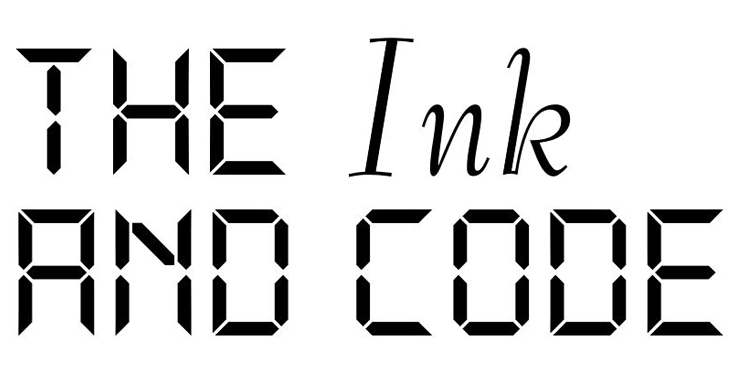“God exists. He lives in Brussels.”
With those lines, The Brand New Testament begins.
Fueled by a playful exuberance reminiscent of Jeunet’s Amélie, this new film by Jaco Van Dormael explores the writing of a “Brand New Testament” by the 10-year-old Ea after she leaves behind her curmudgeon of a father, who is in fact God (the Old Testament one through and through, delighting in creating the annoyances that plague mankind from his relic of a desktop PC) and her quiet mother who sputters around their drab apartment embroidering, vacuuming, and admiring her baseball card collection. Ea wasn’t the first child to leave the household. Her brother JC (i.e., Jesus Christ) left and never returned, though a statue of him comes to life in Ea’s bedroom, offering himself as a sounding board for his younger sister.
Before venturing out into the world, Ea wreaks havoc by sending out texts alerts to all of mankind, notifying them of how much time they have left to live. To write her Brand New Testament, she enlists the aid of a homeless man to do the writing and they set off to find six apostles of her own (JC mentioned 12 was too many and 18 total would equal their mother’s favorite number and the number of her baseball cards). God soon follows after Ea, wanting to prevent her from making more of a mess, and soon runs afoul of many of the struggles he’s subjected humanity too.
Ridiculous? Absolutely. Delightful? Without a doubt. Sacrilegious? Some may think so, but only those who do not give this film a shot. Steeped in absurdity, it manages to be one of the most compelling pro-faith films ever made.
Religion is obviously a touchy subject and the sensibilities of this film could easily upset religious folks who are uptight. They might think the film is mocking their beliefs, but it that couldn’t be farther from the truth. It’s more mischievous than irreverent. Through Ea and her peculiar group of apostles (a lonely one-armed woman, an assassin, a self-proclaimed sex addict, an affluent but unhappy housewife, a man who wasted on mundane work, and a sick young boy), the film celebrates the flourishing of the human spirit in the face of hardships.
Ea soon learns it was a mistake to reveal when everyone was going to die, but her act wasn’t without its upsides, both great and small. All war seems to cease as per news reports and many people embrace the liberation that comes with knowing how much time they have left and how to spend it. Ea speaks of Earth as the Heaven with the afterlife having nothing to offer. In crafting her Brand New Testament, she’s challenging her apostles and the rest of the world (and the film’s audience) to live in the heaven we have now instead of waiting for one to come.
The pre-teen Pili Groyne portrays Ea remarkably. She has to carry the weight of the entire film and acts against all-time greats like Catherine Deneuve. With just three films on her resume, Groyne has established herself as a young actor to watch.
Benoît Poelvoorde plays the easily-angered God to great comedic effect. He’s not an evil God, just a misguided one. Think of Woody Allen’s classic line from Love and Death, “If it turns out that there is a God, I don’t think that he’s evil. But the worst that you can say about him is that basically he’s an underachiever.” Locked away in his study, plotting mankind’s destiny and throwing obstacles in the way, he has lost any connection to his glorious creation. He doesn’t want anyone sitting at his right side at the dinner table and claims his son JC spoke off the cuff, not representing his father’s views. His wife, the Goddess, played by Yolande Moreau, may appear meek and kowtows to her husband, but also shows great wisdom. When God is about to leave the apartment to retrieve Ea, Goddess warns him of the dangers of the world, as though she possesses a knowledge of it that God doesn’t. The more we see her go about her life in the apartment, the more we’re rooting for her to reach her full potential.
More than one character states that one of the key purposes of life is to meet someone and have children. And therein lies this miserable God’s redemption—even if after he receives his comeuppance for the troubles he’s caused. He may have done many bad things, but he also made Jesus and, now, Ea. (And now I’m thinking of Woody Allen’s “God’s answer to Job” bitfrom Manhattan.) His children, with a little help from their mother, improve his wonderful but flawed creation that is our world. It takes a family to make it all work.
The film isn’t perfect. I’d argue it could stand to lose five to ten minutes to better maintain the brisk and whimsical pace it has for the most part. But even when it briefly lags, the strength of the material keeps it going. I want to list all the many fine details that make this film so charming, but putting them to words won’t do them justice. See and experience it for yourself. The Brand New Testament is bright, funny, and engaging film, which is exactly what’s needed when tackling such heavy subject matter like God, religion, and the pursuit of a fulfilling life.

